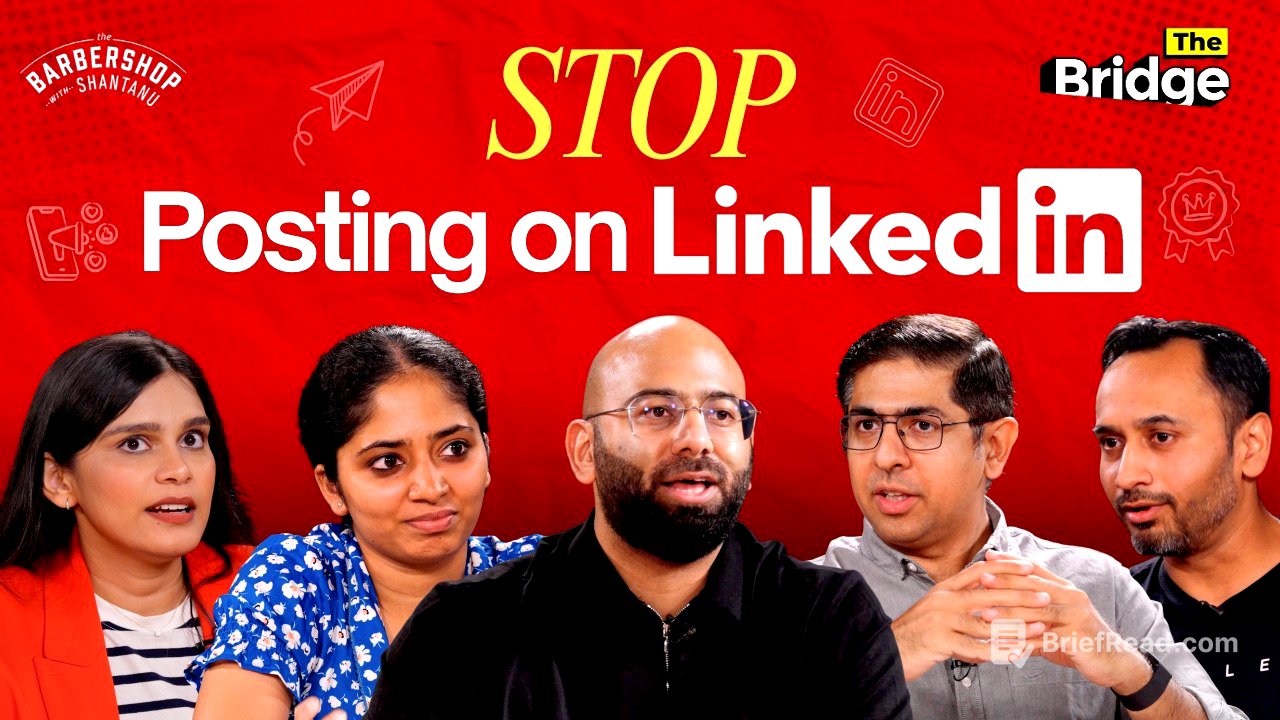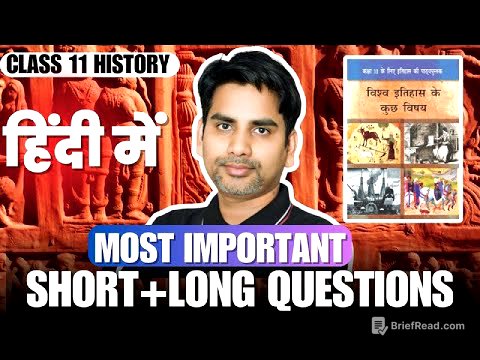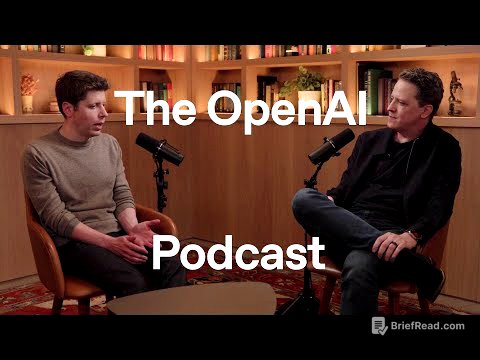TLDR;
This episode of The BarberShop discusses the importance and impact of personal branding, especially for Gen Z and founders. It covers the views on personal branding, the authenticity gap, its role in career advancement, and how social media and storytelling play a crucial role. The discussion also touches upon recruitment parameters, the effort behind personal branding, and how founders use platforms like podcasts to boost growth.
- Gen Z's perspective on the authenticity of personal branding.
- The role of storytelling in building a brand.
- How personal branding impacts recruitment and career growth.
Coming up [0:00]
The host previews the discussion, posing questions about whether a 21-year-old should build a personal brand, the potential pitfalls of excessive LinkedIn activity, and the necessity for founders to become storytellers. It also touches on examples of companies using employee branding effectively and the dangers of building a personal brand that becomes irrelevant over time.
Introduction [1:00]
Shantanu welcomes Koshik, Rayant, Gautami, and Ai to discuss the importance of building personal brands through various platforms like podcasts, LinkedIn, and Instagram. He highlights the effort people put into thought leadership and positioning, questioning whether it's worthwhile, how much effort is required, and how sustainable it is in the long run.
Views of Gen Z on Personal Branding [2:06]
Gautami shares that she wasn't familiar with the term "personal brand" until recently. She notes that while personal branding can create connections and inspire through stories of individuals like Vinita Singh or Leena Nair, the charm has diminished due to the constant stream of content and a better understanding of the strategies behind it. The authenticity feels lost as efforts to be authentic become more strategic and less organic.
The gap between the true self and the public persona [3:45]
Koshik explains that building a personal brand involves content and delivery. Content should be authentic and reflect who you are, while delivery may require external help to adapt to changing formats. He uses Vinita Singh as an example, noting her consistent focus on fitness, family, and work. While content should remain authentic, delivery methods need to evolve with changing attention spans, from blogs to YouTube videos to reels.
The role of branding in starting a career [6:59]
Shantanu asks why personal branding is important for those starting their careers, especially given concerns about embellishments. The discussion explores the pressure to "one-up" peers and the influence of successful parents. Rayant points out that for founders, building a brand is often tied to commercial success, but the motivations may differ for employees.
Employee views on Personal Branding [8:25]
Ai shares that companies often discourage employees from personal branding due to concerns about attracting recruiters or giving the impression of having too much free time. Koshik expresses surprise at this, noting that he encourages his team to build their brands. The conversation touches on the fine line between authentic employee branding and manufactured endorsements, using examples like Zepto and Blinkit.
Promoting online presence vs. valuing offline skills [11:52]
Rayant emphasizes that he values authenticity and passion in potential hires. He looks for high-agency people who are passionate about the company. While a good social media presence is a plus, it's not the primary focus. He appreciates seeing candidates showcase their work and relationships within the industry, validating their skills and contributions.
The importance of storytelling in building a brand [14:28]
The panel agrees that storytelling is more important than personal branding itself. Storytelling is seen as an output, while personal brand is an outcome. Practicing storytelling helps build a muscle that is valuable for leaders in consumer companies. Koshik shares that his LinkedIn posts about suppliers increase their loyalty to the organization.
How social media impacts personal branding [18:42]
The discussion shifts to how social media impacts personal branding and recruitment.
Recruitment parameters based on personal brands [19:08]
Rayant argues that there's too much noise on social media, making it dangerous to focus solely on building a personal brand. He believes it can lead to becoming a slave to algorithms and chasing validation through followers. He prioritizes reference checks to understand the real person, as social media often presents a distorted view.
The reality and effort behind personal branding [22:27]
Koshik shares that if you try to build a personal brand, there is no end. He emphasizes the importance of authenticity and deep, private conversations over solving for an algorithm. He believes that focusing on reach and engagement can lead to inauthentic behavior and a constant need for instant gratification.
Founders on using podcasts to boost growth [25:41]
The panel discusses why founders use platforms like podcasts. Rayant suggests it's about expanding influence and reaching new audiences. He uses the example of Nikhil Kamat, who uses his platform to expand his reach beyond the business world. Shantanu adds that his baldness became a hook for his company, demonstrating how personal stories can attract attention.
Closing thoughts [27:54]
The discussion concludes with thoughts on legacy and impact. Rayant notes that as people age, their priorities shift from valuations to health, family, and legacy. He believes that personal branding, done authentically, can contribute to building a lasting legacy. The guests thank each other for the candid and insightful conversation.









